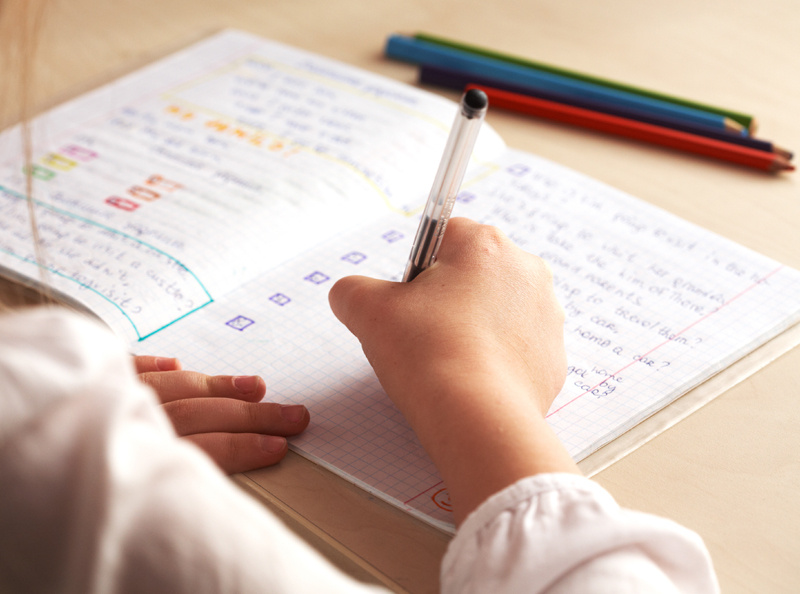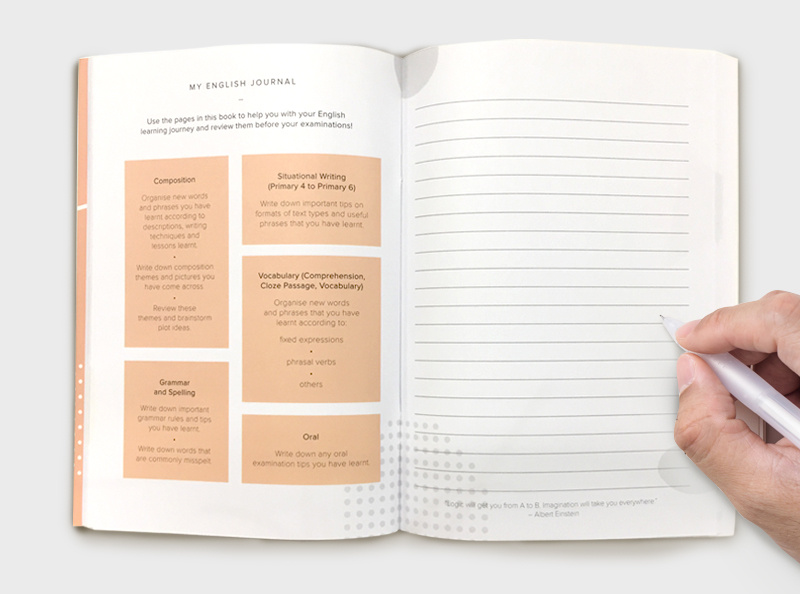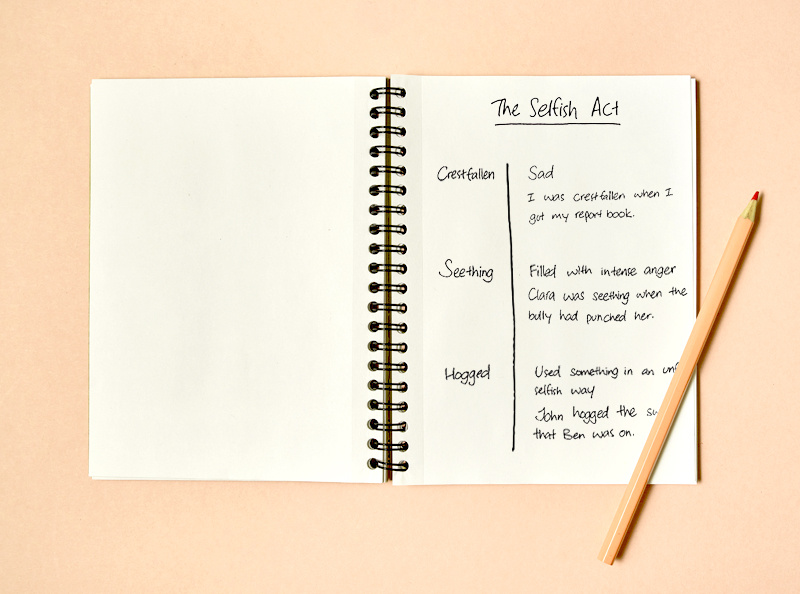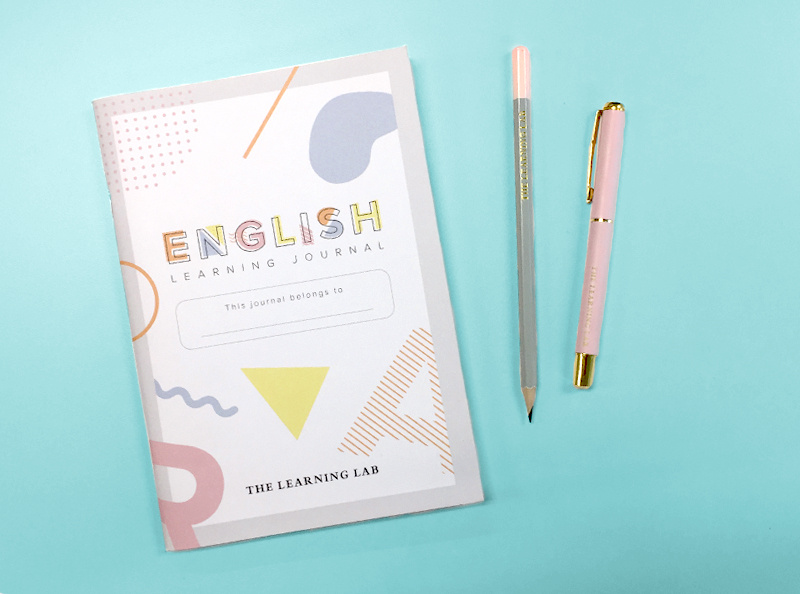
New year, new school, new opportunities for growth! Read our article as we share some tried and true tips for parents and children in the lead up to the first day of primary school.
A Whole New World Awaits
New classmates, new teachers, new school environment — your child’s tiny world is about to get a lot bigger. With these changes come opportunities for personal, social and cognitive growth.
The Countdown And Preparation Begins
In these weeks as you count down to your child’s first day of school, you may be wondering, “What will school be like for my child? Will my child be able to cope in the new environment?”
Parents can help by being proactive — research from professionals at Duke University suggests that establishing a strong communication channel with your child’s teachers helps and so does monitoring changes in your child's behaviour or mood when he or she first starts school.
Whether at home or in school, we’ve got some great tips for every stage of preparation that will help you (and your child) pave a smooth journey towards the new school term in January.
1. Create A Routine That Works
Studies have shown that routines help children feel safe and secure. Set up a routine that works for your child — whether it’s a shower before dinner or an afternoon snack before naptime, it’s important that your child gets into a routine that he or she is comfortable with.
2. Identify Friendly Figures In School
Helping your child identify teachers or staff he or she can go to for assistance is important. When your child recognises trustworthy figures of authority, he or she will feel more secure in the new environment.
Related Article: Gear Up For Primary 1
3. Prepare An 'Emergency' Fund
You may want to consider setting aside an “emergency fund” for your child. Placing extra money in a separate wallet or purse to be kept in his or her school bag means that your child will still have access to money if he or she misplaces pocket money. However, you should set some strict rules about when this money can be used.
4. Test Out That Transport Route
It may be a good idea to have a few dry runs of your child’s journey to and from school to help your child familiarise himself or herself with the route. Help your child identify key landmarks and remember the specific place where he or she will be dropped off or picked up from everyday.
Related Article: Raising A Responsible Child
5. Set Mini Goals To Achieve Together
Help to make the experience seem less daunting by setting mini goals for the first day of school. Start with small tasks like “Leave the house on time” or “Remember to bring my water bottle home” or “Meet one new friend in class today”. These mini goals give your child something to look forward to on his or her first day of school!
Download Our Special Guide To Surviving And Thriving In Primary 1
The Learning Lab would like to extend our help as you and your child are preparing for Primary 1 and the new adventures that lie ahead. Download our fun and informative guide filled with 25 great tips to help your child survive and thrive in Primary 1!
Keeping a journal is a simple yet extremely effective way to improve your child's vocabulary. The steps are simple; whenever he or she encounters a difficult or unfamiliar word while reading, look up its definition and jot it down in a journal.
Ms Hong Jiayi, English Subject Head and Ms Tan Shi Yin, English Teacher, from The Learning Lab, Choa Chu Kang, Jem and Westgate, explain the academic and lifelong benefits that come from keeping a journal.

The Practice of Keeping Journals
Has your child ever asked you for help in designing a school journal?
Your child’s English teacher in school may have tasked him or her, along with fellow classmates, with a fun activity of crafting and designing their own journals. Subsequently, your child’s teacher may get the class to write a journal entry every week as part of their homework.
This practice of keeping a journal is also incorporated into our students’ learning journey here at the Learning Lab. To enhance our students’ ability to internalise an ever-expanding range of vocabulary, teachers at TLL routinise the weekly update of difficult words and phrases and their meanings in a journal.
This journal, which we term an English Journal (EJ), is used across kindergarten and primary school levels.
The content written in an EJ may extend beyond simply noting down new vocabulary. Depending on the teacher or lesson covered, students may also take down their own notes on general knowledge, grammar rules, or even commonly misspelt words.

Diary of a TLL Student
If your child is an English student at TLL, you may be aware that our students submit their journals on a weekly basis during lessons. This is so that our teachers can peruse through every student’s journal to ensure that the content written within is accurate and useful for their revision.
Ms Beautrice Lee, one of our English teachers, encourages her students to include descriptive phrases for compositions in their EJs, especially show-not-tell phrases that could be used to explain a character's feelings.
“After kickstarting the list with my students, they can continue adding on to it on their own as they go through more composition writing with us in TLL,” Ms Beautrice reveals.
Another English teacher, Ms Amalina Mazlan, highlights that for lower primary students, EJs can be part of a fun exercise as well.
“When we did a cloze passage on Japan’s Ramen Museums, my students drew their own ramen bowls into their EJs,” Ms Amalina shares, tapping on the idea that drawing is one useful way for students to learn new vocabulary in a very rich and engaging way.

How Does This Practice Benefit Your Child?
Students may find updating their EJ a chore, but we should persist in encouraging students to make this practice a habit. Students who consistently update their EJs will find the following benefits.
1. Reinforcing Recall of a Wide Range of Vocabulary and Phrases
The practice of writing new words and phrases down helps students better understand and recall the meanings of these terms. In addition to that, students are able to revise these vocabulary words easily since all the difficult words, along with their definitions, are now compiled into one handy notebook.

Some students even go the extra mile when they jot down new English words in their journal.
Our English teacher, Ms Tan Shi Yin, has a precocious Primary 2 student who practises sentence construction with the words she has learnt in class.
Another TLL English teacher, Mrs Jocelyn Loo, proudly announces that one of her Primary 2 students uses the words he has put together in his EJ to write his own stories in the style of “Diary of a Wimpy Kid”.
2. Gain Maturity as Learners
In terms of their learning dispositions, the practice of keeping an EJ also helps students develop good habits in the following ways:

Small Efforts, Big Results
First, this practice encourages students to put in consistent work. Though they may not know it at the start, their small weekly efforts eventually add up to a big result, and the proof is in a tangible collection of words and meanings they amass at the end of the academic year.
Cultivates a Habit of Note-Taking
Second, it ingrains the habit of taking down notes when they have encountered something interesting or learnt something new. This shows students that learning can extend beyond the classroom and that their daily lives are rife with potential for learning.
Takes Pride in Their Work
Finally, the practice encourages students to take pride in their independent work. Over time, students begin to rely less on teachers' reminders and begin updating their journals on their own.
In TLL, it is not uncommon to see words jotted down in student's journals that they have encountered outside of our curriculum. This shows a level of maturity and independence in learning much higher than that of their peers in primary school.
“Some students are so proud of their EJ that they would bring it to school!” Mrs Loo adds happily.
All Your Child Needs is a Notebook and a Pencil

The practice of keeping an EJ can start from a very young age. As mentioned in this article, the benefits of this practice can manifest in a variety of ways. It is not only an effective method to learn new vocabulary, but also a great way to develop students’ ability to consolidate information and learn independently.
All your child needs to start his or her own personal EJ is a notebook, a pencil, and persistence. Soon, your child will have a wealth of personalised information and notes at his or her disposal!
At TLL, our teachers inculcate the habit of keeping an EJ through fun activities. Ms Amalina’s students actually look forward to receiving their EJs back from their teacher at the start of every lesson, as they always find an interesting puzzle tucked away within their journals.
“Usually before the class starts, I will paste a fun activity sheet into each student’s EJ,” Ms Amalina explains. “For example, if we learnt about adverbs the week before, I would personally create a word search puzzle that has 10 adverbs hidden in it for them to find.”
Not every teacher utilises Ms Amalina’s method, but every teacher at TLL is equally as dedicated to their students’ learning journey. Each teacher goes above and beyond the call of duty, using their own unique technique of keeping their students entertained and engaged with learning the English language.
Looking for more hands-on ways to keep your child engaged, entertained and educated throughout this home-based learning period? Check out our collection of #StayHome activity sheets and guides that contain a wealth of resources and ideas that will allow your little one to discover the little joys of learning.
Find out more about our English programmes here.
The Learning Lab is now at locations. Find a location that suits your needs.
If you have any questions about our programmes, please email us at enquiry@thelearninglab.com.sg or call us at 6733 8711 and we will be happy to assist you.

